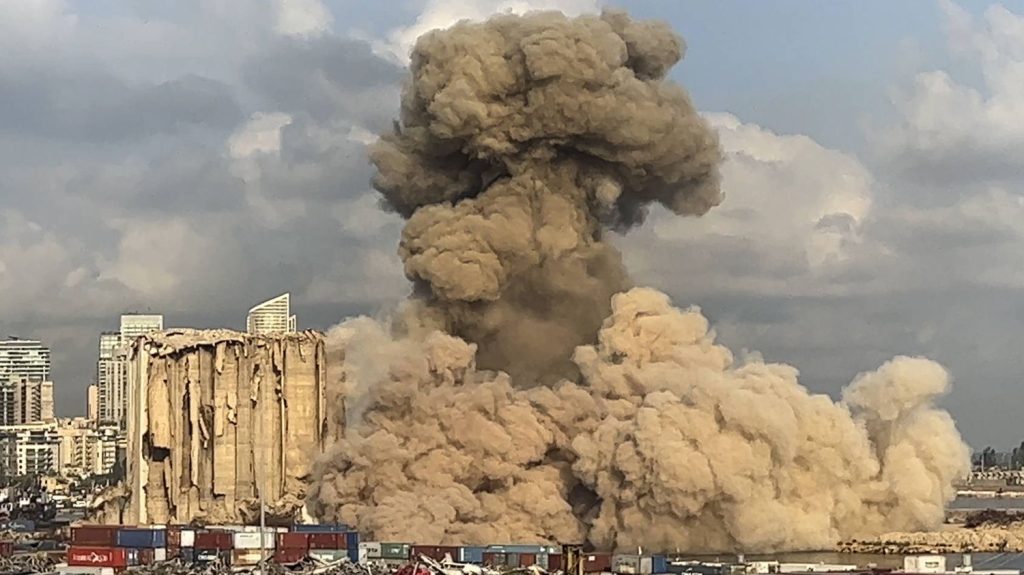
The collapse of a new part of the grain silos in the port of Beirut
This new breakdown comes after a fire broke out in July. By July 31 and August 4, the other granaries had already collapsed.

published
Modernization
reading time : 1 minute.
A cloud of smoke. The last part of the northern block of silos collapsed in the port of Beirut on Tuesday 23 August, two years after it was damaged by The devastating explosion on August 4, 2020, killed more than 200 people, injured 6,500 and destroyed entire neighborhoods in the Lebanese capital. These towers were the last of the northern block of silos. For now, the remaining towers in the southern block are stable, according to French civil engineer Emmanuel Durand, who has installed sensors inside the silos. In total, there were 48 silos. Today, there are twelve of them still standing.
Prior to this new collapse, relatives of the victims had called for a sit-in at the port, which had been scheduled for late Tuesday afternoon. ‘We hold the authorities accountable’ Mariana Vodolian, who lost her sister in the blast, said the silos collapsed. “We must protect the southern part and the entire site (…)”She added that it is a memorial place for the victims.
On July 31 and August 4, other towers collapsed after a fire broke out in early July in the worst-hit part of the silos, according to authorities and experts, due to fermentation of remaining grain stocks, along with rising temperatures. Since then, several towers have been burning in flames.
>> “There is still a lot to do”: Two years after the Beirut port explosion, slow reconstruction of the city
The authorities had in April ordered the silos to be demolished, but the decision was suspended due to opposition from relatives of the victims of the tragedy who want to make it a place of remembrance. Minister of Public Works and Transport Ali Hami had claimed that 25,000 square meters of the capital’s port would be allocated for the construction of new silos, adding that the funding would come from international donors and his ministry.

“Unapologetic pop culture trailblazer. Freelance troublemaker. Food guru. Alcohol fanatic. Gamer. Explorer. Thinker.”
